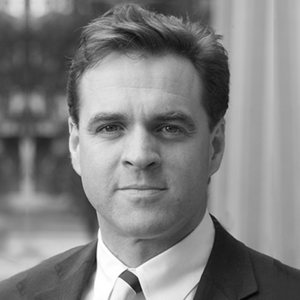A group of academics who decry American universities as “broken” and “illiberal” announced this week the establishment of The University of Austin, which they say will be committed to “freedom of inquiry, freedom of conscience, and civil discourse.”
Pano Kanelos, a former president of St. John’s College in Annapolis, Maryland, will serve as the university’s founding president. He laid out the vision for the university in a post on substack, saying that it would be “retro” and have “as few screens as possible.”
“Our project began with a small gathering of those concerned about the state of higher education—Niall Ferguson, Bari Weiss, Heather Heying, Joe Lonsdale, Arthur Brooks, and I—and we have since been joined by many others, including… (Professors) Kathleen Stock, Dorian Abbot and Peter Boghossian.”

Kanelos added, “We count among our numbers university presidents: Robert Zimmer, Larry Summers, John Nunes, and Gordon Gee, and leading academics, such as Steven Pinker, Deirdre McCloskey, Leon Kass, Jonathan Haidt, Glenn Loury, Joshua Katz, Vickie Sullivan, Geoffrey Stone, Bill McClay, and Tyler Cowen.”
“We are also joined by journalists, artists, philanthropists, researchers, and public intellectuals,” he added, naming several. “Our backgrounds and experiences are diverse; our political views differ. What unites us is a common dismay at the state of modern academia and a recognition that we can no longer wait for the cavalry. And so we must be the cavalry.”
Kanelos separately told other media outlets that he moved to Austin three months ago and the university already raised $10 million. Kanelos’s former employer, St. John’s, which he left last year, is best known for a Great Books reading list that forms the basis of its curriculum.
‘Hostile Response’
The announcement already sparked criticism by many in the national press and academia. For instance, a staff writer at The New Republic panned the new University of Austin as an “anti-woke university” that “seeks to be higher education’s premier institution of monetizing moral panics.”
Locally, the Austin American-Statesman ran a story headlined, “Some University of Austin advisors accused of offensive remarks.” And some Texans criticized the choice of name, which is similar to The University of Texas at Austin, the UT System’s flagship institution.
On the other hand, New York Times columnist Ross Douthat, a conservative, defended the university while also citing some “tensions inherent in the new project,” such as “the tension between the desire to promote great academic seriousness and the culture-war flag-waving that might be necessary to rally donor support.”
He said the way in which the founders announced the project was bound to stoke controversy: “The fact that the University of Austin was announced with an essay on my former colleague Bari Weiss’s extremely popular but also extremely polarizing Substack, and offered in its initial literature a sharp-elbowed critique of progressive conformity in higher ed, was enough to guarantee a reflexively hostile response.”
Founding Program
The University of Austin doesn’t have a campus yet and hasn’t admitted any students. It has three faculty fellows: philosophers Peter Boghossian and Kathleen Stock, and writer Ayaan Hirsi Ali. The former St. John’s College president, Kanelos, will serve as a founding trustee alongside historian Niall Ferguson, journalist Bari Weiss, evolutionary biologist Heather Heying, and tech investor Joe Lonsdale, who co-founded software company Palantir.

Niall Ferguson 
Joe Lonsdale 
Heather Heying 
Bari Weiss
On its website, the University of Austin says it will launch a slate of “Forbidden Courses” over the summer of 2022, open to undergraduates from other institutions. In Fall 2022, it will launch its first MA program in Entrepreneurship and Leadership, followed by MAs in Politics and Applied History, and Education and Public Service in Fall 2023.
“We are in the process of securing land in the Austin area for a campus,” the university says on the website. Kanelos told The Texas Tribune that the university would have “an old-school, 1950’s cafeteria” and probably also a “soccer field and a basketball hoop outside,” but few other amenities. That would reduce the cost of tuition, he stated, and keep the university focused on its core mission.
Financially, the university is currently sponsored by the Cicero Institute and shares an address with it on Rio Grande Street, near the UT campus. The institute is chaired by Lonsdale, the tech investor. It incorporated in Texas in October 2020.
Cicero Institute describes its mission as “(partnering) with state leaders across the country to design market-driven policy systems that foster accountability, promote transparency, and improve people’s lives.”
Thanks for reading! Please subscribe to show your support.
